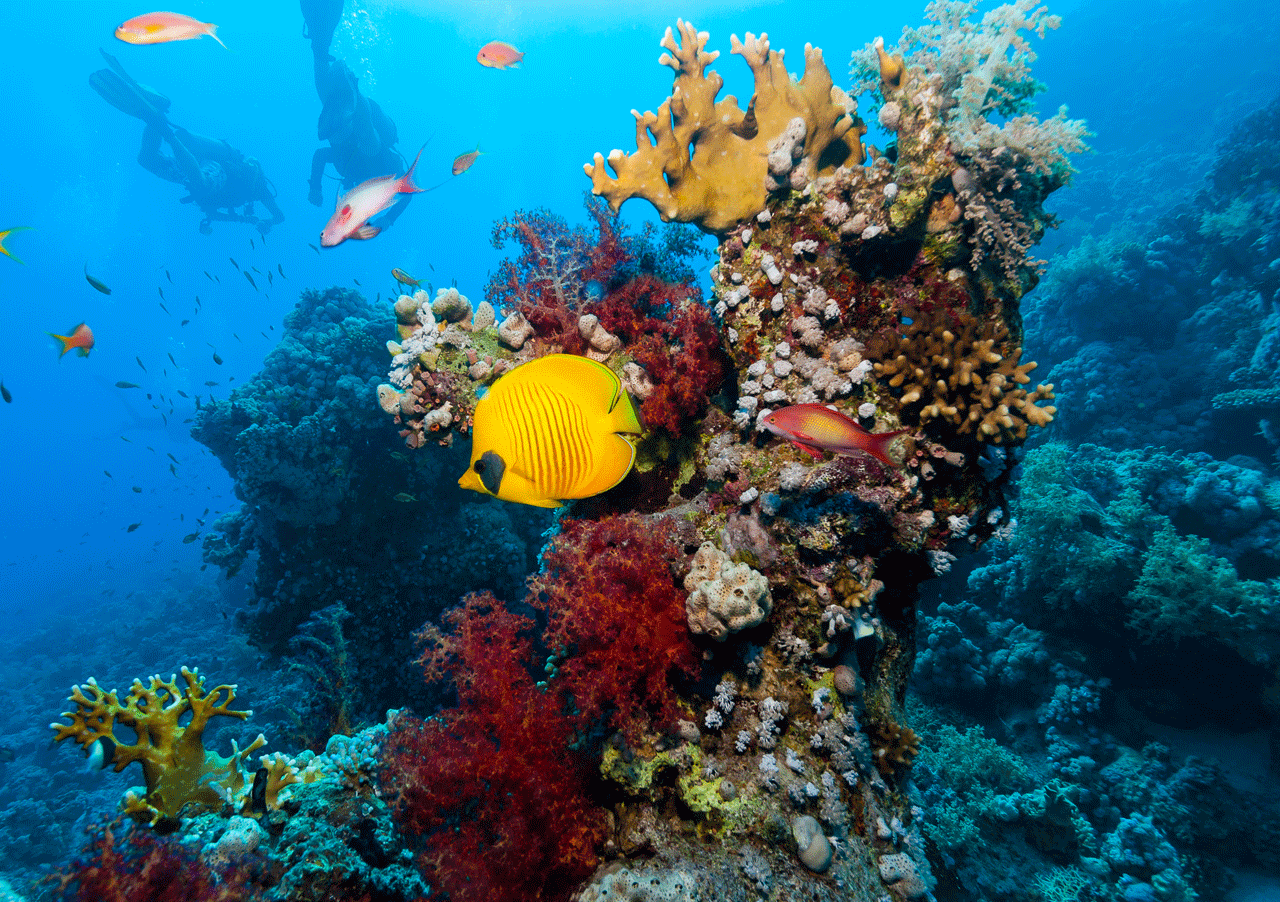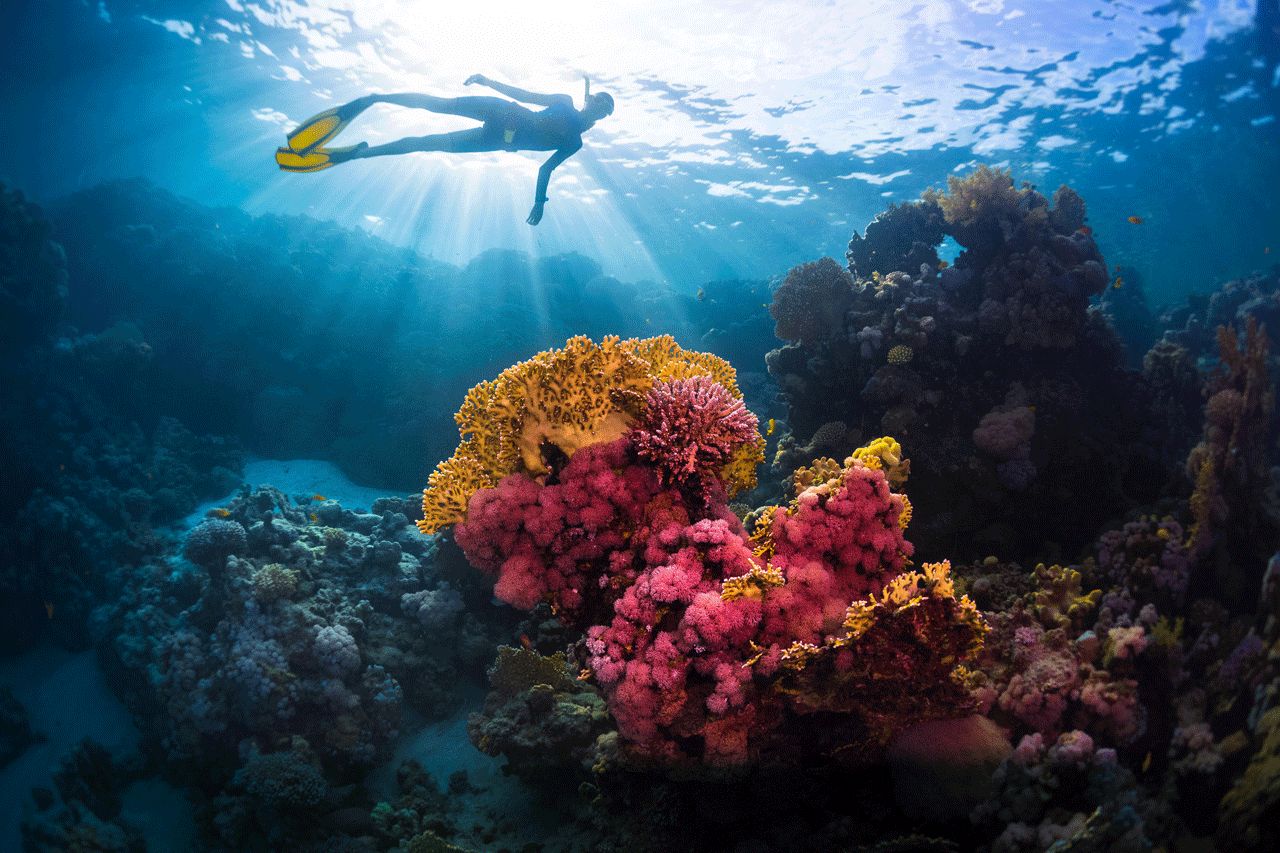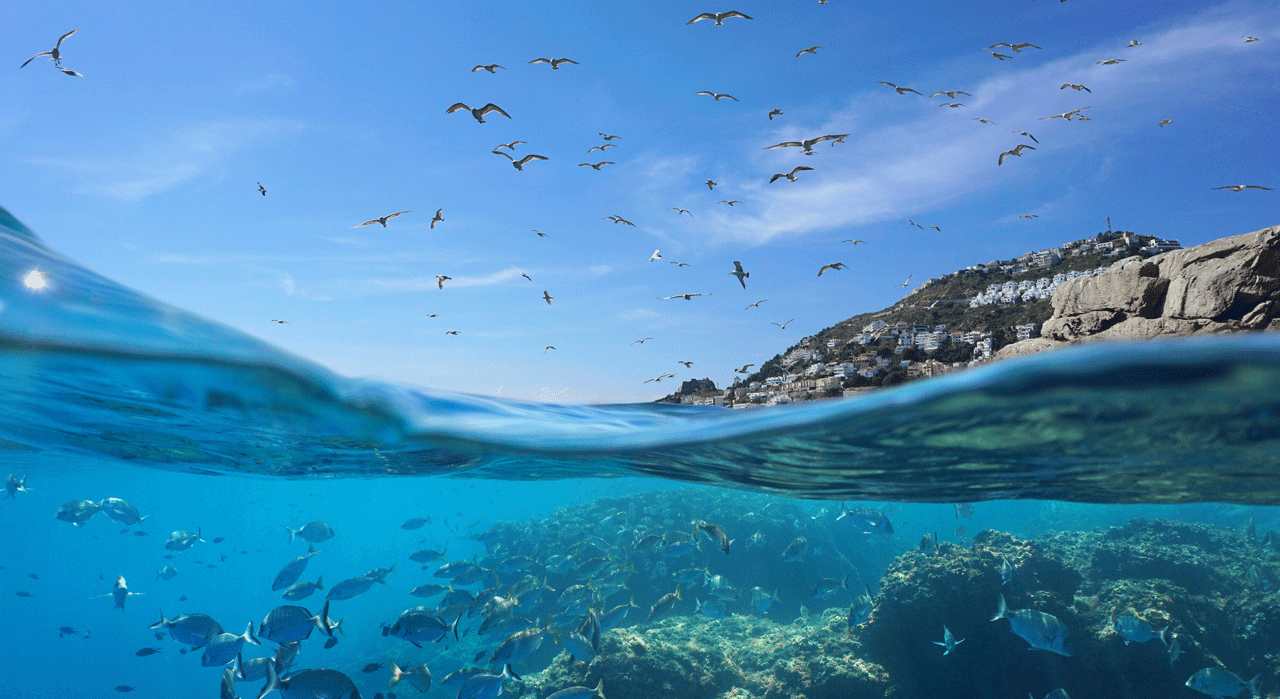The world's living oceans

Princess Hala bint Khalid bin Sultan, a member of the Khaled bin Sultan Living Oceans Foundation, spoke about the foundation's work in preserving and studying the marine environment during the University's recent Enrichment in the Fall program. Image courtesy of Shutterstock.
The Khaled bin Sultan Living Oceans Foundation has been a major player in the preservation of marine life and the environment since it was established in December 2000. From its beginnings, the foundation adopted a specific strategy focusing on research, education and communication in line with its core values—as embodied in the slogan "Science Without Borders."
The foundation seeks to put science at the service of nature and spotlights the marine environment as one of the Earth's vital natural resources. It focuses on preserving the environment at all levels—locally, regionally and globally. This is done through conducting research, studies, seminars and conferences in cooperation with numerous countries and international organizations, as well as with local institutions that include universities and ministries in Saudi Arabia.

Princess Hala bint Khalid bin Sultan (pictured here at KAUST) discussed the work of the Khaled bin Sultan Living Oceans Foundation during the recent Enrichment in the Fall program. File photo.
Princess Hala bint Khalid bin Sultan, a member of the Living Oceans Foundation, spoke at the University's Enrichment in the Fall program that took place on campus from October 20 to 23. She discussed her father Prince Khalid bin Sultan's passion for diving—which began when he first dove in the Red Sea in the mid-1990s— and how this passion fueled the establishment of the foundation. When he returned to the same spot to dive several years later, he found the marine environment and corals there had changed dramatically, spurring him to establish the foundation.
Two of the foundation's most important projects were highlighted by Princess Hala bint Khaled bin Sultan. The first is a research expedition that lasted five years, during which time 200 researchers visited 15 countries and 1,000 sites, collecting a large amount of information. The information is still under study, with the aim of producing recommendations that will influence the countries visited and their neighbors and encourage them to preserve the health and sustainability of ocean resources.
The second project is one of the foundation's many scientific programs, and is called the Mangroves Program at middle and secondary schools. The program is active in Jamaica and the Bahamas, where the foundation regularly sends its specialists to visit local schools. They aim to raise awareness to produce an entire generation keen on preserving the environment and impacting their communities as a whole.

Prince Khalid bin Sultan’s passion for diving that began in the mid-1990s spurred him to establish the Living Oceans Foundation. Image courtesy of Shutterstock.
"The Kingdom is currently undergoing an important transitional phase in line with the objectives of Saudi Vision 2030," Princess Hala said. "Several tourist and economic projects have been announced along the shores of the Red Sea—the most prominent of which is NEOM, as well as the recently announced project Amala. This is certainly the time for us as institutions to begin community outreach and marine life conservation programs."

Princess Hala bint Khalid bin Sultan, a member of the Living Oceans Foundation, noted that it is 'certainly the time for us as institutions to begin community outreach and marine life conservation programs.' Image courtesy of Shutterstock.
Princess Hala noted she visited KAUST several months ago and was then briefed on the University's programs and research in marine science. She also added that the Khaled bin Sultan Living Oceans Foundation and KAUST have much in common, and she revealed the possibility of future joint cooperation on research projects or educational programs.
Related stories:

